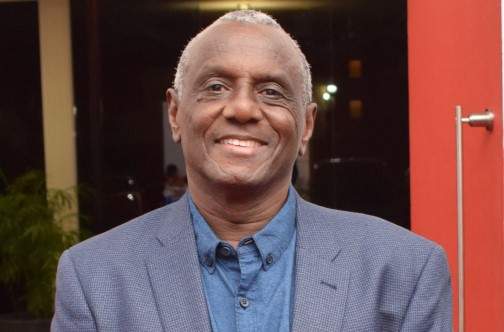
Most people enjoy at least one genre of music… indisputable.
What is also indisputable is the fact that many people in their enjoyment of music give scant regard to the complex elements, stages, and costs involved in the production of recorded music. The creator of the music is the source and so the creation, consumption, and enjoyment of recorded music is not free. Fair, equitable, acceptable, and agreed compensation must be accorded to and accepted by the creators. Anything other than that is illegal.
Music is an intangible cultural item from which Jamaica has benefited more than most other of her cultural assets. Through its many usages and applications it promotes and boosts entertainment, tourism, advertising, live performance and other industries and creates thousands of jobs in several sectors — from major corporations, to music video producers and stylists, to the humble peanut vendor. In Jamaica, between 6,000 and 12,000 people are directly or indirectly employed within the music industry and about 25 per cent are self-employed — generating approximately US$15M to US$20M annually, adding over 4.8 per cent to the country’s gross domestic product (GDP) and providing employment for three per cent of the population.
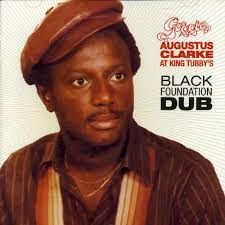
Protecting copyright music
The usage of copyright music falls basically into two categories:
1 Recorded music, once copyrighted requires permission for usage;
2 Interpretations, derivatives and/or sampling of works and usage in commercials, movies, and video games, etc.
If a creator wishes to use elements of an existing, original song (lyrics, music, melody or a sampled portion of the original song) in his or her new work, permission/approval must first be sought and granted before the commercial release of the new song. This normally requires the payment of a non-refundable, non-recoupable, upfront fee and an agreement on the percentage of ownership in the new work. Similar and in some cases different terms obtain for usage of original copyrighted works to be used in advertising, movies, stage plays, soundtracks, video games and other applications.
With the usage of copyright music, compensation amounts should not be conveniently left to the behest of those who wish to enjoy or exploit for financial enrichment, often to the impoverishment of the creators of music. Wanting to enrich yourself from someone else’s intellectual property, while trying to dictate the price tag is dishonest, unreasonable and borderline unethical. Users need to understand that there are no free lunches. People must be paid for their works.
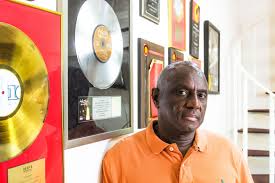
Music is perhaps the most important input to guarantee the success of any entertainment event, for example parties, fêtes, stage shows, barbecues, fashion shows and sound system clashes. However, users resist securing a legal music license from a collective management organization (CMO), often claiming that the fee is too high. Without a murmur, they pay the decorator, caterer, liquor companies, security, marketing companies and the providers of infrastructure and equipment such as sound and lighting and parish council permits.
Promoters who use recorded music to enhance their events should ask themselves two questions: Since the work of lyricists, composers, arrangers and publishers contributes to the success of my event, shouldn’t they be properly compensated? and Shouldn’t the level of compensation be set by those who have been entrusted to represent these creators? Let us be clear, nowhere in the civilized world has the consumer or exploiter of music ever had the right or authority to set the price for the use of music.
To create great fruit you must nurture the root
The creators of music are the root of our culture and recorded music is the fruit. Failure to nurture and protect the root, will result in substandard or no fruit. Jamaica is signatory to international treaties and conventions which mandate the framework and guidelines within which we must operate. Being bound by these conventions, Jamaica must ensure that it honours and remains in good standing as non-compliance can result in consequences relating to global trade and other relationships.
The Jamaican Government worked assiduously and in 2018 was successful in getting reggae music inscribed by the United Nations Educational, Scientific and Cultural Organization (UNESCO) on its intangible cultural heritage list. The big question is, when will we see similar efforts to ensure that our copyright laws provide greater protection for the creators of our music?

CMOs, such as the Jamaica Association of Composers, Authors and Publishers (JACAP) and the Jamaica Music Society (JAMMS), represent different rights and rights holders who are the legal owners in each recording. These organizations are signatories to reciprocal agreements with international CMOs which represent over 90 per cent of all music created in the world. Contrary to the view of many, they are governed by and accountable to the international organizations, are duty bound to adhere to international rules of best practice and are not at liberty to operate in a vacuum and their own self-developed standards.
The challenge for most people is that they incorrectly see the representation of the music as the recording artiste. However, though some recording artistes double as songwriter and arranger, a recording artiste is not necessarily the creator of the music. In one song there can be multiple rights holders and owners such as authors, composers and publishers, with different percentages of ownership, which must be agreed upon and documented when the work is registered with the respective CMO.

Through the public education work of JACAP and JAMMS, there has been an increase in the number of exemplary and compliant entities and individuals, securing the requisite music licenses for the staging of events. However, too many promoters of large and small events are still guilty of non compliance and several have had to be taken to court to honor their obligations. JACAP and JAMMS are not for profit organizations, acting in the best interest of their members and the global songwriting and music community. Approximately J$200 million is paid out each year to the creators, between 50 and 70 per cent is paid out to foreign creators because of the ratio of foreign to local music being played in Jamaica.
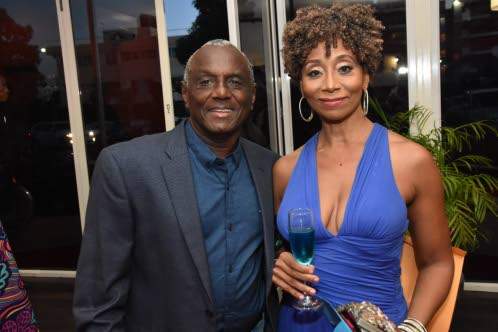
Greater effort must be applied to safeguarding the interests of the creators of the music, the source, from which many other streams of income develop. History is replete with stories of creators of mega hits who have died penniless and this generation must step up to the plate to ensure that we do the right thing. Secure the requisite licenses which ensure that the creators of music earn when their music is used. Remember, without the creators, there would be no music.
With over 50 years’ experience in the music industry, legendary music producer and publisher Gussie Clarke is well respected locally and internationally for his innovativeness, creativity, uncompromising standards and overall professionalism.
The veteran producer, a Kingston College graduate, was one of the first music publishers, through his company Dub Plate Music Publishers which has a catalogue of over 10,000 songs. Clarke is also hailed as the first Jamaican producer to regularly issue royalty payments to artistes.
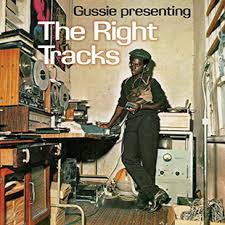
As a student he leveraged money from selling rides on his bicycle to purchase a pre amplifier, turntable, speaker and power amplifier parts and made speaker boxes in woodwork class. He imported records through a friend in New York and supplied sound systems with 7 inch, 12 inch and Dub specials and was given an amplifier as a birthday gift. This allowed him to operate King Gussie’s Hi-Fi working along side bigger heavy-bass sound systems promoting reggae and facilitating the birth of deejay music.
At 18, he launched his career as record producer and his first artiste was the legen dary pioneer U-Roy. Since then has produced hits artistes including Dennis Brown, Freddie McGregor, Gregory Isaacs, Maxi Priest, Shabba Ranks, The Mighty Diamonds, Augustus Pablo, Coco-T, Home-T and Thriller-U. He is the CEO of the Anchor Group of Companies, which includes Anchor Recording Company, Anchor Media Products Ltd, Dubplate Music Publishers and Music Works.

Clarke is a founding member and former director of JAMMS and a founding member and current director of JACAP. For his outstanding contribution to reggae music he was awarded the Order of Distinction, Commander Class in 2019, and awarded a bronze Musgrave Medal for “Distinguished eminence in the field of Arts”.

